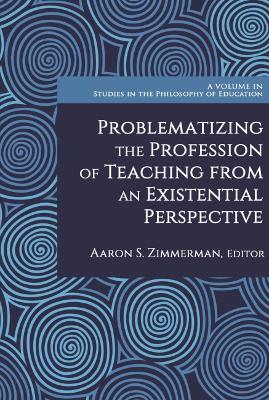Studies in the Philosophy of Education
1 total work
Problematizing the Profession of Teaching from an Existential Perspective
Published 30 June 2022
Teachers not only serve as caretakers for the students in their classroom but also serve as stewards for society's next generation. In this way, teachers are charged with responsibility for the present and the future of their world. Shouldering this responsibility is no less than an existential dilemma that requires not only professional solutions but also personal responsibility rooted in subjective authenticity. In the edited volume, authors will explore how the philosophy of Existentialism can help teachers, teacher educators, educational researchers, and policymakers better understand the existential responsibility that teachers shoulder.
The core concepts of Existential philosophy explored in this edited volume imply that a teacher's lived experience cannot be defined solely by professional knowledge or dictates. Teachers have the capacity to create subjective meaning through their own agency, and there is no guarantee that those subjective meanings will accord with professional dictates. Furthermore, there is no guarantee that professional dictates are more valid than the existential realities of individual teachers. The philosophy of Existentialism encourages individuals to reflect on the existential realities of isolation, freedom, meaninglessness, and death in an effort to propel individuals towards more authentic ways of engaging in the world. The chapters of this edited volume advance the argument that being and becoming a teacher must be understood – at least in part – from the subjective perspective of the individual and that teachers are responsible for authoring the meaning of their lives and of their work.
The core concepts of Existential philosophy explored in this edited volume imply that a teacher's lived experience cannot be defined solely by professional knowledge or dictates. Teachers have the capacity to create subjective meaning through their own agency, and there is no guarantee that those subjective meanings will accord with professional dictates. Furthermore, there is no guarantee that professional dictates are more valid than the existential realities of individual teachers. The philosophy of Existentialism encourages individuals to reflect on the existential realities of isolation, freedom, meaninglessness, and death in an effort to propel individuals towards more authentic ways of engaging in the world. The chapters of this edited volume advance the argument that being and becoming a teacher must be understood – at least in part – from the subjective perspective of the individual and that teachers are responsible for authoring the meaning of their lives and of their work.
